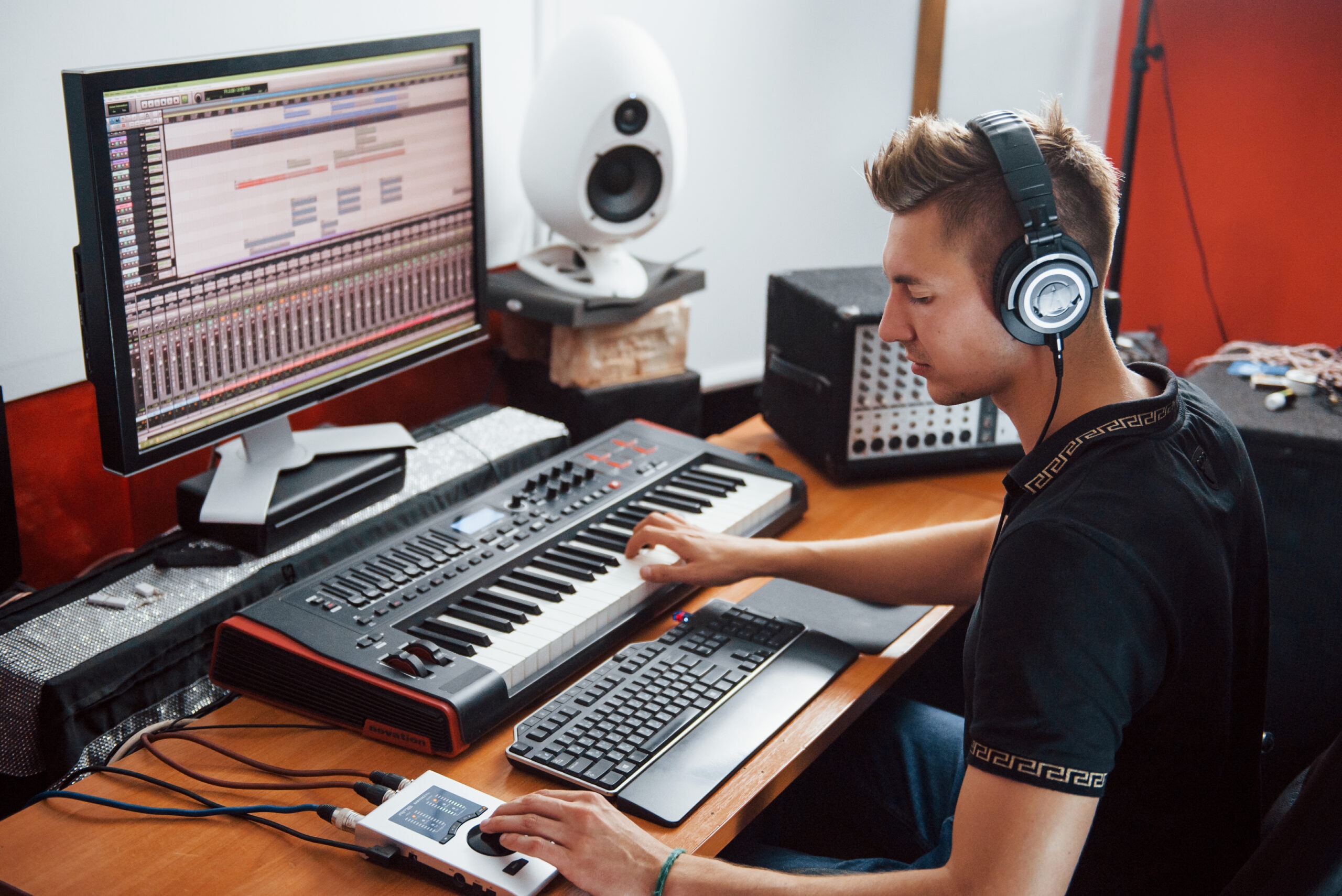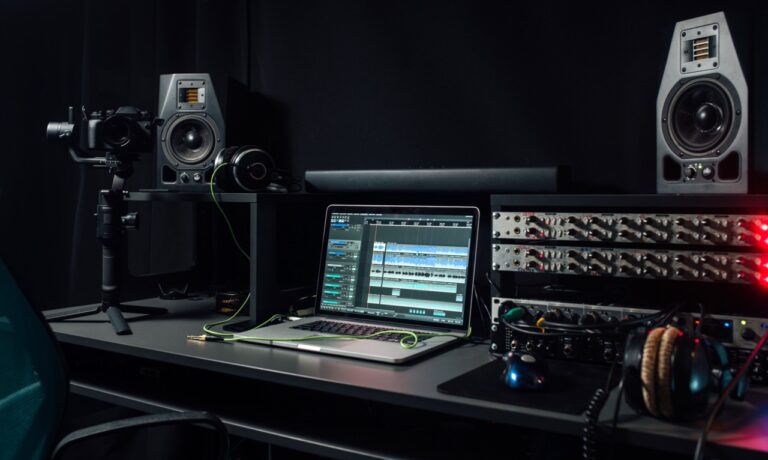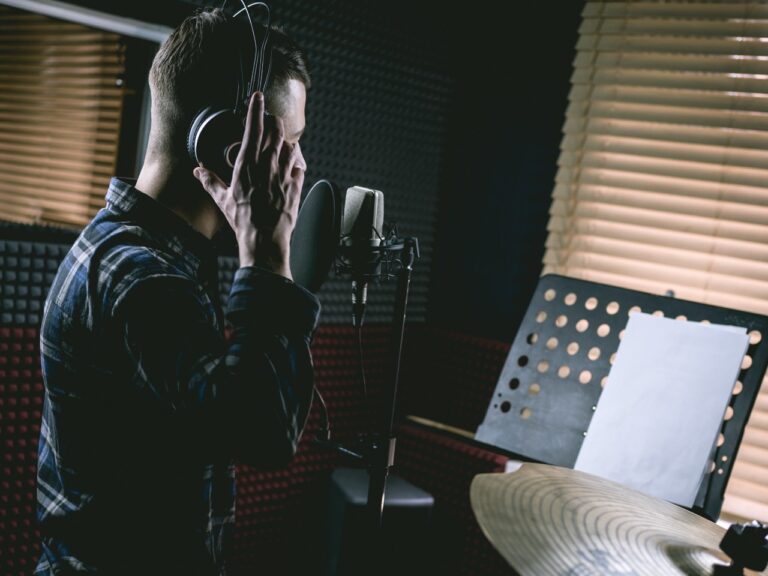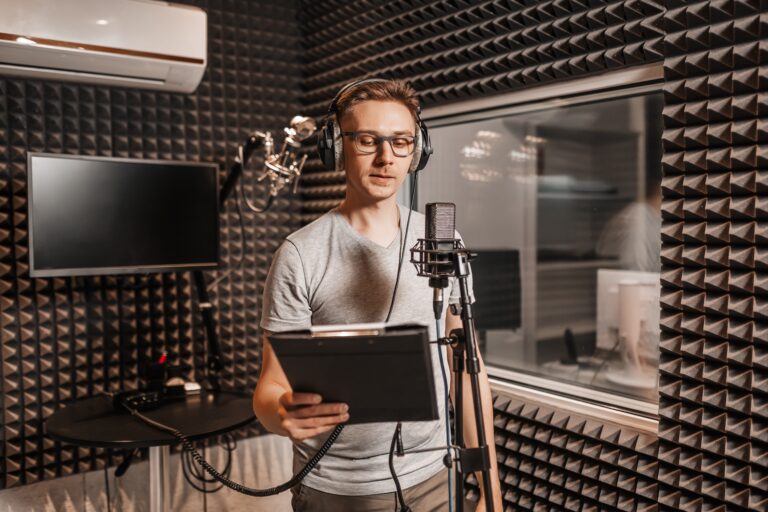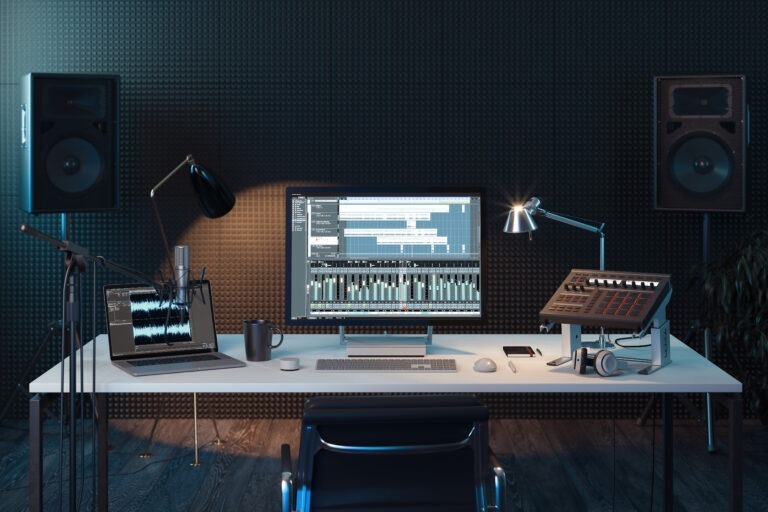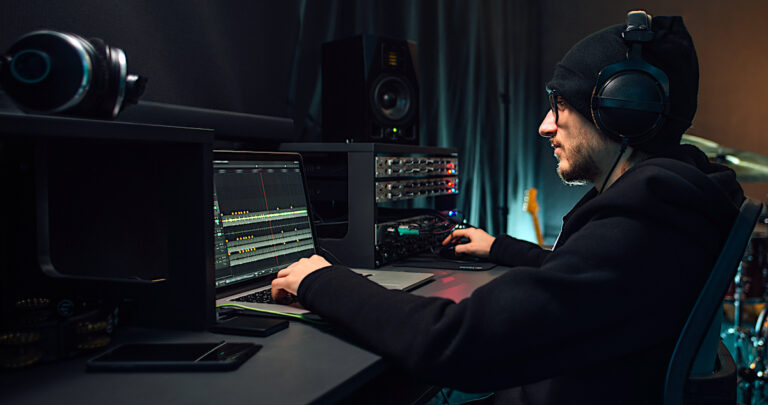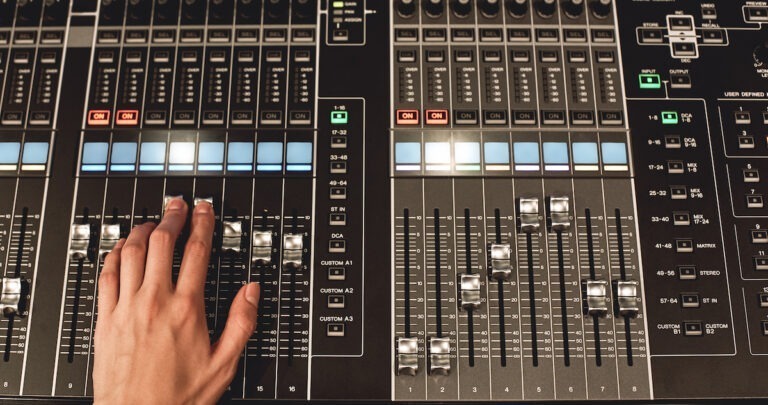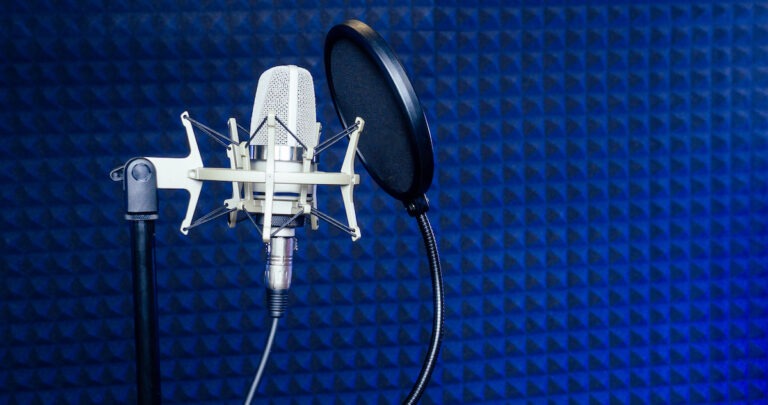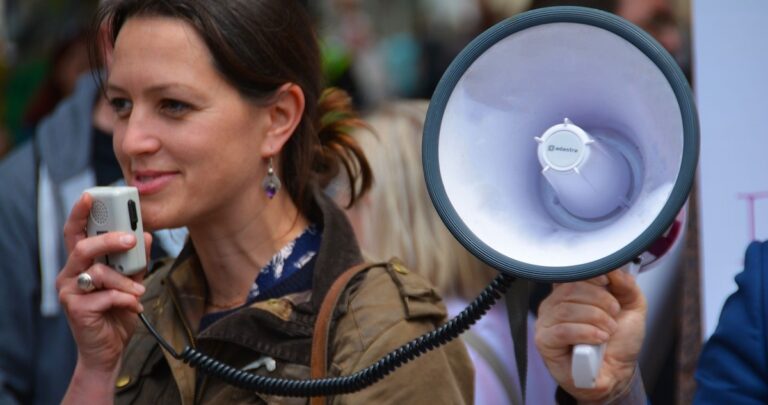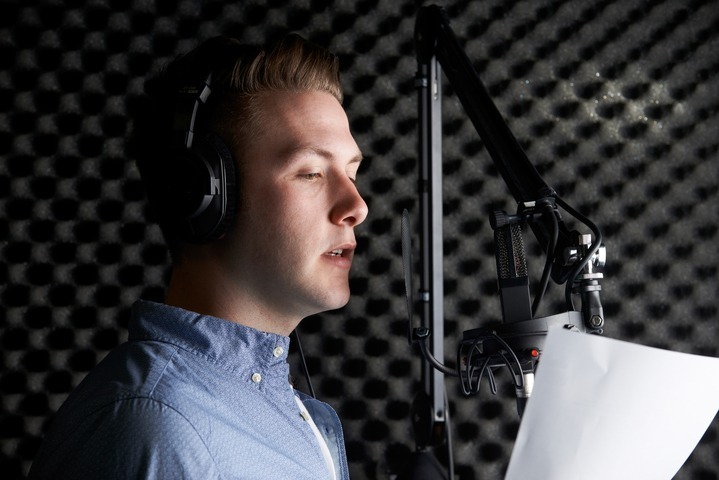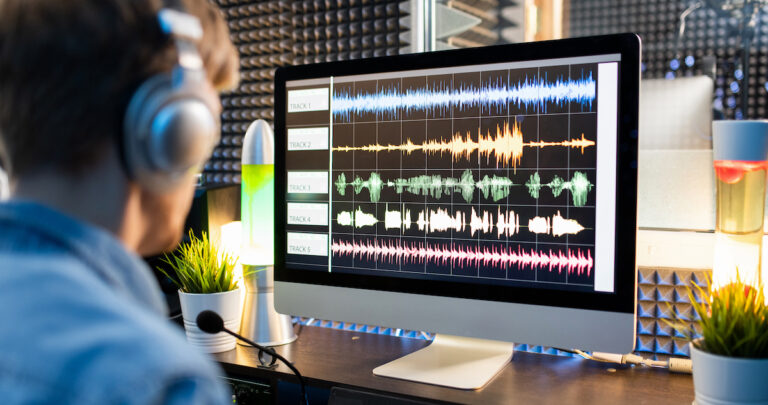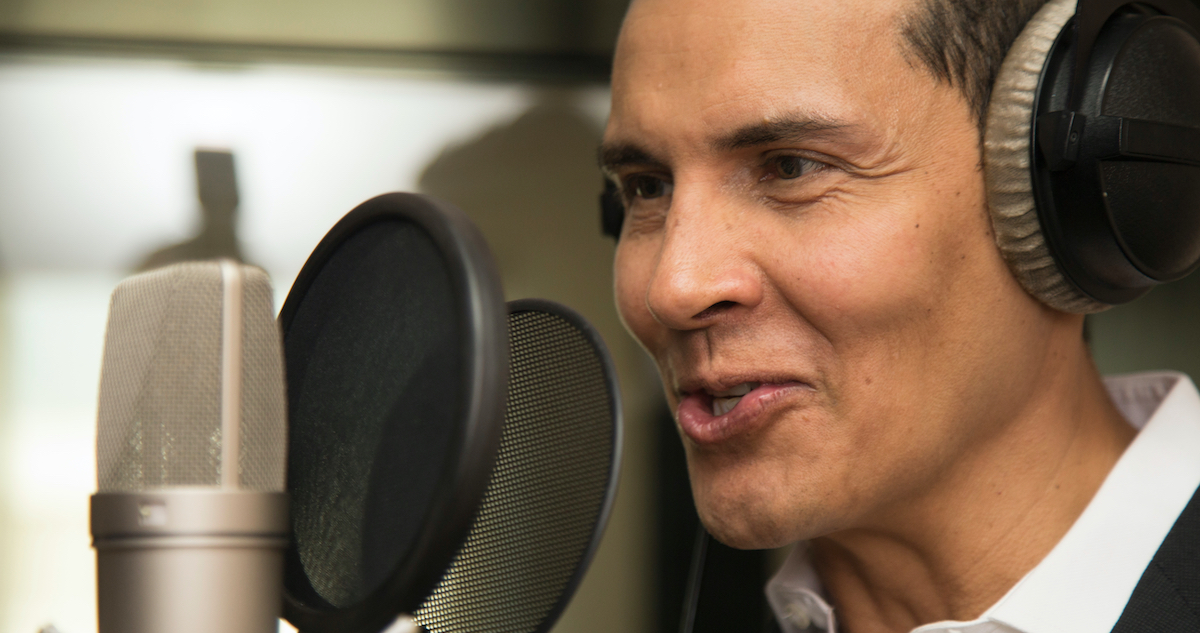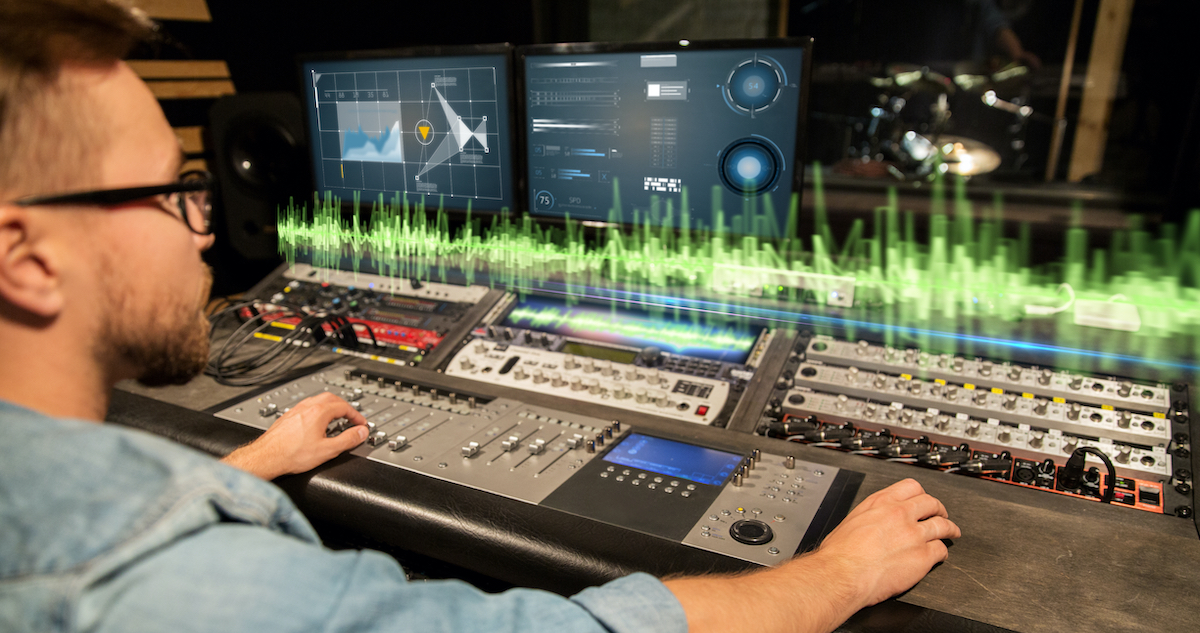What comes to your mind when you think of audio engineering – nerdy geniuses armed with cables and microphones? Actually, audio engineers are geniuses with digital recorders and software who transform audio waves into immersive soundscapes. They create electrifying vibrations in concert halls and the richness of your favorite song. They turn ‘What’s that noise?‘ into ‘Wow, that sounds amazing!’
At Voice123, if there’s one thing we know, it’s audio – be it human, AI, or even engineered. So, whether you’re an aspiring audio engineer seeking new sound frontiers or if you’re just looking to unravel the process of audio engineering for your audio projects – this guide explores all aspects of audio engineering in 2025. We’ll discuss what is audio engineering, what does an audio engineer do, and what’s the difference between a sound engineer and an audio engineer. It’s time to let the symphony of sound begin!
What is audio engineering
Audio engineering is the process of recording, editing, mixing, and manipulating sound in music, film, television, and radio. This enhances the audio content by adjusting audio levels for clarity and removing unwanted noises. For example, in music production, audio engineering involves shaping a song’s tonal balance with equalization and using audio compression to control dynamic range. In film or television, audio engineering synchronizes dialogue, sound effects, and music so a broom falling over doesn’t sound like a thunderbolt and the words the audience hears match the correct speakers. But what is the actual definition of an audio engineer?
What is an audio engineer
An audio engineer is a technical sound architect with detailed knowledge of audiovisual productions, signal flow, and acoustics; they use special recording and engineering equipment, different sonic elements, audio editing software, and processing techniques to create immersive auditory experiences for audiences. They also work with recording artists, producers, and directors to troubleshoot technical issues and ensure high-quality audio output. For example, in film and video production, an audio engineer carefully positions microphones to capture dialogue. And when working on a suspenseful scene in a thriller, they can add subtle ambiance or startling sound effects to build tension. Here’s more detail on what audio engineers do.
What does an audio engineer do
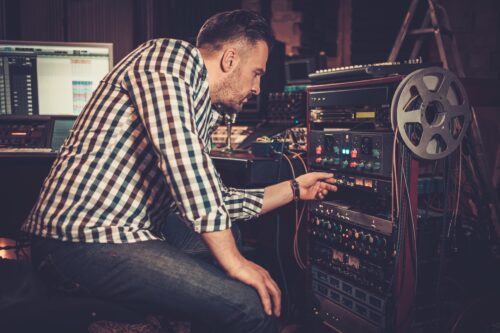
An audio engineer does all the audio capturing, manipulating, and enhancing to achieve the desired sound quality and effect. They install and operate recording equipment and audio inputs to capture sound. Next, audio engineers mix the individual tracks and remove background noise and distractions to enhance the overall experience. Finally, audio engineers use compressors, limiters, and noise gates to master audio. This optimization ensures consistent volume and tonal balance, resulting in high-quality audio content. So audio engineers play a critical role in delivering an exceptional audio experience to the audience. But what’s the difference between a sound engineer and an audio engineer?
What’s the difference between a sound engineer and an audio engineer
The difference between a sound engineer and an audio engineer is that they operate in different environments; sound engineers typically work in live settings like concerts and theater productions, while audio engineers work in a studio dealing with live and recorded performances. It’s also worth noting that sometimes sound and audio engineers can be used interchangeably depending on the context.
Sound engineers are acoustic experts that construct and fine-tune sound systems and make real-time adjustments to create an immersive, balanced sonic experience. Audio engineers capture, edit, mix, and master audio recordings. They also lend their expertise to film and video productions to craft stunning soundscapes that elevate the experience for audiences. So what are the different types of audio engineers?
10 types of audio engineer
1. Recording Audio Engineer
A recording engineer works in recording studios on albums, film soundtracks, or voice over sessions. They set up microphones, adjust sound levels, and operate recording equipment. For example, an audio engineer will set up a pop filter in front of the microphone to reduce plosive sounds during the performance for clear vocal recordings.
2. Location Recording Audio Engineer
A location recording engineer specializes in capturing audio outside of a studio environment, like on-location for a film shoot. For example, at a live outdoor concert, the audio engineer uses different microphones to capture the band and the crowd while navigating wind and background noise like screaming crowds.
3. Mixing Engineer
A mixing engineer works with recorded tracks from different instruments and blends each track, adjusting the levels and applying audio effects to create a balanced and cohesive mix. For example, when working on a hip-hop track, an audio engineer applies creative effects like auto-tune to the vocals with panning techniques for dynamic beats and vocal mixing.
4. Film/TV Mixing Engineer
A mixing engineer for film/TV handles the post-production audio process for films, television shows, or commercials, and they combine dialogue, sound effects, and music to create the final audio mix. For example, with a commercial, an audio engineer balances the voice over with background music and sound effects to communicate the intended message.
5. Mastering Engineer
A mastering engineer specializes in optimizing the final mix of a music project for distribution across various platforms, including CDs, digital downloads, and streaming services, and they ensure consistency across tracks in an album. For example, on a pop single, they make the final tweaks to the mix, ensuring the vocals are upfront and the bass is punchy.
6. Broadcast Mastering Audio Engineer
A broadcast mastering engineer creates audio for broadcast platforms like radio and television, ensuring the audio content meets the platform’s technical standards. For example, when working on a TV show, an audio engineer balances dialogue, music, and sound effects so the audio maintains consistent quality throughout the program.
7. Live Sound Audio Engineering
A live sound engineer controls the sound for the audience during concerts or live events. They work with a mixing console, adjusting levels, EQ, and effects to achieve the desired sound for the audience. For example, during a live concert, they might boost the vocals to make them more prominent and adjust the drum levels to maintain a powerful and rhythmic foundation.
8. Monitor Audio Engineering
A monitor engineer helps performers on a stage hear themselves and other instruments clearly through onstage monitors or in-ear monitors with their individual mixes. For example, when working with multiple bands, an audio engineer might create separate monitor mixes for the lead vocalist, guitarist, and drummer based on their preferences and the stage layout.
9. Broadcast Audio Engineering
A broadcast engineer manages the technical aspects of radio broadcasts, like the radio transmission equipment and audio routing systems. For example, during a live sports broadcast, the audio engineer manages the audio feed from the commentators, coordinating with the production team to ensure the commentary is clear and they troubleshoot any issues.
10. Television Broadcast Audio Engineer
A television broadcast engineer works in television or production studios to ensure the smooth operation of audio equipment and transmission systems. For example, during a live news broadcast, the audio engineer ensures audio synchronization with video feeds; they monitor audio levels and troubleshoot technical issues with audio transitions.
Audio engineering for audio projects

Audio engineering involves carefully balancing the dynamic levels, adjusting the frequencies, and applying sound effects which guarantee high-quality and polished audio content. For example, in a podcast, an audio engineer can ensure the host’s voice is clear and prominent while maintaining a suitable background music volume that enhances the listening experience. So whether it’s a podcast, commercial, or audiobook, a skilled audio engineer can transform raw audio recordings into powerful vocals.
You can hire a freelance audio editor from Voice123 to polish your project’s audio files, or you can use our managed services to get experienced professionals who can handle all your audio engineering needs from the recording to final delivery.
Final thoughts on audio engineering
And that’s a wrap on our 2025 audio engineering guide! From recording studios to concert halls, film sets, and broadcast stations, audio engineers work tirelessly behind the scenes to shape and enhance auditory experiences. And with a keen understanding of recording equipment, signal flow, acoustics, and audio editing software, they can record, edit, mix, and master sound in music, film, television, and radio.
So now that you know the A-to-Z of audio engineering, it’s time to get down to the nitty-gritty – producing your own voice over project. And Voice123 has all the tools and pros to make that possible. Because, like audio engineers, we make the world sound better, one voice at a time!
FAQs
The audio engineer records, mixes, edits, and masters the audio by working with equipment and software to capture, enhance, and optimize sound quality for projects like music recordings, films, podcasts, and more.
The highest-paid audio engineer is a digital signal processing (DSP) engineer, and they work with DSP algorithms to process data and signals in networks or audio systems.
An audio engineer requires technical skills, creativity, and experience, so the field is challenging. Engineers must master complex equipment, understand sound principles, and keep up with technological advancements.

